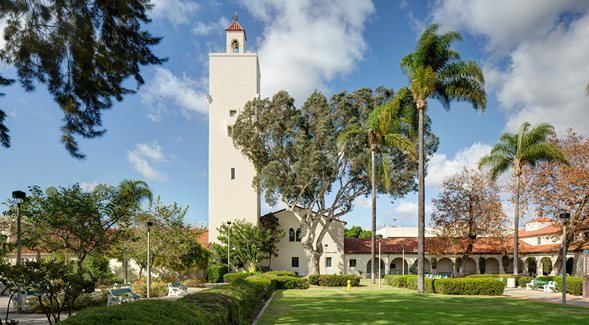Department of Education Grant Strengthens SDSU-Kumeyaay Partnership
Funding will support preparation of school psychologists and school counselors committed to indigenous issues.

Faculty in San Diego State University’s Department of Counseling and School Psychology have received a $1.25 million grant from the U.S. Department of Education Office of Special Education Programs (OSEP) to support the preparation of school psychologists and counselors while serving the mental health needs of Kumeyaay youth in eastern San Diego County.
OSEP will provide funding over five years for school counselor and school psychology graduate students committed to indigenous issues to work across programs and departments, with Kumeyaay community members and leaders and with children in school sites in the Mountain Empire Unified School District. The district serves a student population that is approximately 20 percent Native American.
“I'm especially excited because our collaborations with the Kumeyaay community have expanded over the years; there's greater trust and capacity.” said professor Carol Robinson-Zañartu, director of SDSU’s Native American and Indigenous Scholars Collaborative, who has been building partnerships with indigenous communities in San Diego County for the past 20 years.
“There's a readiness for change that I think we're sitting on the precipice of. I think it's an exciting time to go forward and work in the community.”
The Mountain Empire district is located 45 minutes east of SDSU’s main campus, which lies on historical Kumeyaay land.
The grant was co-authored by Robinson-Zañartu, assistant professor Katheryne Leigh-Osroosh and associate professor Katina Lambros. Robinson-Zañartu will serve as principal investigator and Leigh-Osroosh will serve as co-principal investigator on the project, which is named SHPA after the Kumeyaay word for eagle.
Robinson-Zañartu said the Kumeyaay people have an impressive creativity in areas such as science, agriculture, music, story and astronomy — but she is particularly impressed by their resilience. They have survived through slavery, genocide and stolen lands, to schoolchildren being beaten for speaking their language or expressing their culture. But those lived experiences also instilled what she calls “inter-generational trauma” that impacts on the behavior and academic success of current indigenous students.
“In Indian country, it’s very complex,” Robinson-Zañartu said. “The powerful history of oppression and trauma and re-trauma — both from the community and the government and the schools — has been intense.”
Through SHPA, SDSU students will examine this cultural context in depth, learn how to culturally adapt best practices to them and work to build collaborative communities of practice. They will conduct positive behavior interventions, such as groups to strengthen identity and resilience, bullying prevention and character education, for all students at their school sites while working directly with children who exhibit intense behavior needs.
SDSU faculty and students will work closely with Mountain Empire teachers, parents, community leaders and organizations such as the National Native Children’s Trauma Center to ensure SHPA is a collaborative effort.
“This really pushes us towards decolonizing mindsets and ways we think about our identity and our position within our work and within our relationships,” Leigh-Osroosh said. “That's really essential if we're going to move forward and really serve to the benefit of the community and not just to the profession. That's what I'm most excited about — being a part of it and learning more about the community.”



